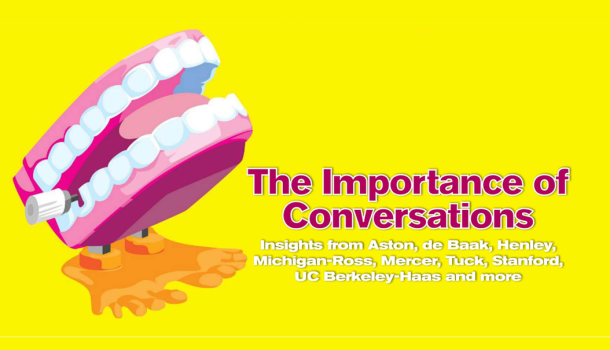
The connections that the authors allude to here are more profound than the just those between people and organizations – they are also about how one’s actions are intricately and inevitably related to one’s experiences and state of mind.
Everything Connects
By Faisal Hoque with Drake Baer Published by McGraw-Hill Education, 2014, ISBN: 9780071830751
As is made clear in almost every article in this magazine – the business context that leaders now operate in is a complex and interconnected one; so finding a book that is titled ‘Everything Connects’ is, perhaps, a statement of the obvious. However the connections that the authors allude to here are more profound than the just those between people and organizations – they are also about how one’s actions are intricately and inevitably related to one’s experiences and state of mind.
As Marshall Goldsmith points out in the book’s Foreword the authors have “created a book that’s as much about business as it is about life, or as much as about life as it is about business.” This Möbius Strip of an observation sums up, almost as neatly as the book’s title, the core message of the book – Everything Connects. Goldsmith goes on to note that the authors “believe that the more we can humanize the way we work, the more innovative we become…the more we understand the mental and emotional causes of innovation and creativity, the more we can untie the knots that stop our progress.”
Faisal Hoque left Bangladesh at 17 to study engineering in the US and has since made his name as a serial entrepreneur and technology ‘thinker’ and a student of eastern philosophy. It is perhaps this mixture of traveller, engineer, entrepreneur and philosopher that allows Hoque to pool his ideas so holistically. The book opens with the arresting statement “Although efficiency is not the opposite of innovation, the structures and behaviours that create them may be opposed” and continues with the Buddhist parable that the mind is like a cup, it can be full of expertise but then become ‘rigid’ in that new ideas are difficult to accommodate – or empty – the ‘beginner’s mind’ where possibilities are endless. It is the ‘idiot savant’ approach – and has much to commend it.
Hoque and Baer take the reader through a journey of the self, exploring the context and benefits of mindfulness and its role in ‘self-awareness’ – that leader’s imperative. And then see how that affects how we work together, our use of time, long-term planning, and eco-systems. The authors’ then start to draw together the innovation theme, identifying that innovation in organizations at least, is founded in the organization’s structure; that innovator’s need roles and clusters to perform of their best – which brings us to ‘where the individual meets the organization’.
Citing LinkedIn founder Reid Hoffman’s HBR observation that the contract between employee and employer is no longer life-long, but ‘tours of duty’, “The employer says ‘If you make us more valuable, we’ll make you more valuable’. The employee says “if you help me grow and flourish, I’ll help the company grow and flourish’.” This book shares an important message with anyone trying to ‘operate’ in the modern world – that in order to do so effectively it is necessary to understand the connections within yourself as much as those around you.
View the PDF of the Review or visit the link at @IEDP.
About IEDP
IEDP is a trusted and unprejudiced industry voice – increasing the impact of Leadership Development on large organisations. IEDP publishes specialist information for leaders and leadership development professionals, focusing on the latest developments, ideas and















